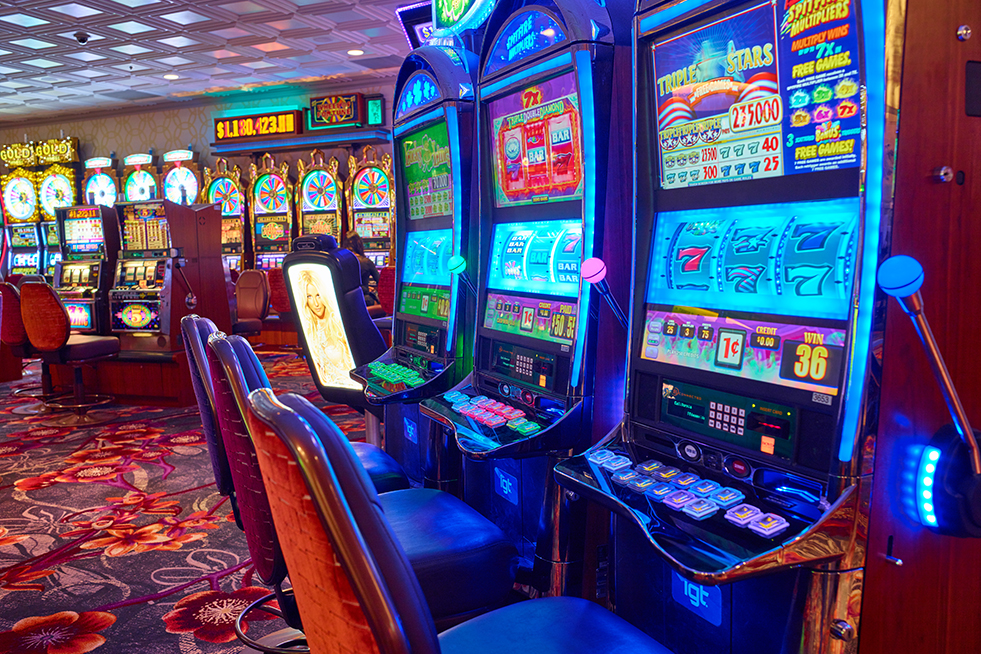Casino experiences have captivated players for centuries, transforming from basic recreational activities to intricate adventures that integrate chance, tactics, and amusement. From the early beginnings of gambling in civilizations such as ancient Mesopotamia and Rome to the extravagant corridors of modern casinos, the journey of these games uncovers much about our nature and our interaction with luck. As cultures blended and innovation has progressed, casino games have changed, illustrating the changes in society and developments in gameplay.
The initial iterations of gambling likely involved basic games involving dice and betting on the outcomes of sports competitions. As time passed, these early games grew into better-organized games like table games, roulette, and the myriad slot games that populate the floors of casinos today. Each period brought its unique rules, aesthetics, and cultural importance. In the current era, casino games continue to evolve with the rise of digital gaming platforms, enabling players from various parts of the world to engage in a common experience, further blending the traditional with the modern era.
Initial Beginnings of Gaming Activities
Gaming games have roots that stretch back to historical civilizations, where betting was strongly entrenched in cultural practices and social customs. The first known instances of gambling emerged in ancient Mesopotamia around 3000 BC, involving primitive die games made from knuckle bones. These primitive games laid the groundwork for more complex gambling activities, demonstrating humans’ innate desire to find wealth and amusement through chance.
As civilizations evolved, so did their gambling interests. In ancient Chinese culture, around two thousand three hundred BC, objects were discovered that were similar to early basic forms of a lottery game game. Mig8 More organized instances of gambling arose in the Roman civilization, where activities of chance were a frequent pastime, often occurring in social events. The ancient Romans developed different betting games, which entailed dice and table games, illustrating the pervasive nature of gambling across various social strata.
With the flow of ages, these early games influenced the evolution of modern gambling activities. In the medieval period, playing card games became prevalent in Europe, paving the way for the professional gambling venues we know today. The shift from casual gambling to formal gambling in pubs and personal houses marked a significant shift in how people interacted with games of luck, leading to the eventual creation of casinos as specialized places for betting.
The Rise of Modern Casino Gaming
The late 1960s and 1970s marked a pivotal shift in the field of gambling games, fueled by technological advancements and transformations in cultural attitudes towards gambling. The emergence of personal computers and the World Wide Web transformed the way gamblers interacted with their favorite gaming experiences. Online casinos emerged, allowing gamers to enjoy timeless table games like poker and blackjack from the comfort of their houses. This new online environment not only expanded access to gambling options but also drew in a younger crowd who found the comfort and variety attractive.
As digital gaming gained momentum, so did innovations in casino tech. The development of advanced programs and visual elements changed traditional casino games into engaging experiences. Gamblers could now interact with authentic dealers through live feeds, importing the feel of brick-and-mortar casinos directly into their living rooms. This blending of live gaming with digital interfaces created a novel combination that enhanced the social aspect of gambling, allowing it possible for individuals to engage and compete with fellow gamers around the planet.
Moreover, the growth of gaming on mobile devices significantly changed the casino landscape. With the ubiquitous use of mobile phones and touch devices, gamblers can enjoy their beloved casino games anywhere, at any time. Mobile apps offer a wide selection of options customized for mobile screens, catering to the busy daily life of modern users. This availability has produced rising engagement in casino games, fostering the exponential growth of the gaming industry. As a result, the future of gambling continues to progress, responding to new technologies and changing consumer preferences.
The Impact of Technology on Casino Games
The evolution of technology has greatly changed casino games, enhancing the overall experience for players for players around the world. As the internet emerged, online casinos were created, allowing players to play their preferred games from the comfort of their homes. This shift not only made casino games more accessible but also expanded the variety of games offered, as online platforms could host numerous variations of traditional games without the physical constraints of brick-and-mortar establishments.
Mobile technology further transformed the casino gaming landscape. As smartphones and tablets became widespread, players now have the ability to engage in casino games anytime and anywhere. This mobility has resulted in the development of dedicated mobile applications and optimized websites that provide seamless gaming experiences. Additionally, innovations such as live dealer games have brought the authentic atmosphere of a casino into players’ homes, bridging the gap between physical and online gaming.
Moreover, advancements in AI and VR are leading to the next generation of casino games. AI improves game design and player interaction, creating customized experiences based on user behavior and preferences. Meanwhile, virtual reality provides immersive environments where players can interact in a simulated casino setting, making the gaming experience more engaging and lifelike. As technology continues to evolve, the future of casino games looks promising, filled with limitless opportunities for advancements and entertainment.
